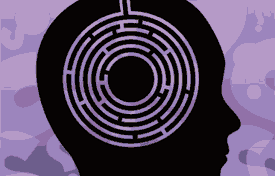
 Cover Story: Dr. Marvin Marshall Cover Story: Dr. Marvin Marshall

Immaculate Perception


There is no such thing as immaculate perception. What you see is what you thought before you looked.


 Articles Articles


Fostering Resiliency in Children


When children are influenced by caring adults with high expectations for their success, they are more likely to withstand negative pressures and become responsible adults.

By Leah Davies



Making the Grade

Are we using grades, or are grades using us? Do we get the biggest possible benefit from grading academic work?

By Todd Nelson


 The Silenced Majority The Silenced Majority

Fifty million students are available on a daily basis with experience and ability to solve many school problems.

Bill Page


 
I Won't Learn What You Teach!
For many of our students, school becomes a succession of damaging power struggles, so it is up to us - their teachers - to boldly step out of that pattern.

By Susan Rismiller


April Writing Prompts
 
In 1828, Noah Webster published the first edition of his dictionary of the American language. What are some slang words or expressions you think might make it into the dictionary?

By Jim Wayne


The Disrespecting of Social Studies
 
The demise of the importance of Social Studies threatens the appreciation for how government works and the rights of the individual.

By Alan Haskvitz


Dear Laura Bush
 
Isn't it time someone pointed out that, after four decades and hundreds of thousands of education “reforms,” perhaps it is the politicians who are failing?

By Bradley Cook


 Classroom Magazines: More Than Just Shared Reading
Classroom Magazines: More Than Just Shared Reading

Classroom Magazines are often overlooked as a valuable resource in reading programs.

By Mandy Yates


 Stay Inside the Lines
Stay Inside the Lines

Color it whatever crazy, hopped up, non-realistic, spasmodic, operatic, rinky-dink color you want, but STAY INSIDE THE LINES!!!

By Kevin Coffey


 Choice, Access, and Relevance: High School Reading Workshops
Choice, Access, and Relevance: High School Reading Workshops

By allowing students choice, access, and relevance, we became a community of readers.

By Kimberly Payne


 Problem-Based Learning pt 2: Good problems Problem-Based Learning pt 2: Good problems

Good problems challenge students to not only use, but go beyond factual information to a deeper understanding of the subject.

By Hal Portner



 Amusing Abacus Amusing Abacus

Addition and subtraction of numbers can be taught using a resource that is inexpensive, colorful, amusing, absolutely child friendly and easy to make.

By P. R. Guruprasad





 Teachers.Net Community Teachers.Net Community


 The Teachers.Net Newsdesk The Teachers.Net Newsdesk

 Teachers.Net Chatboard Poll Teachers.Net Chatboard Poll

 The Lighter Side of Teaching The Lighter Side of Teaching




The Gazette is a collaborative project published by the Teachers.Net community. Submit your work to the Gazette.


|
|
 |
|

